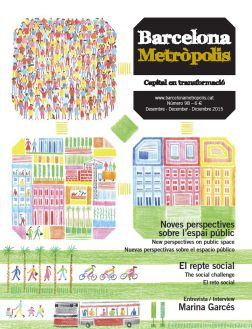The way public space has been managed over the last fifteen years has been a reflection of the policies that have defined the life of our city. This dossier goes over some of the architectural and urban solutions applied, which haven’t always responded adequately to the challenges posed by housing, mobility, urban sprawl and de-industrialisation.
The abuse of mortgage loans and the scarcity of public housing projects have made access to housing difficult for large sectors of the population. In some neighbourhoods, the phenomenon of gentrification has expelled the traditional inhabitants.
Mobility is key in order to rethink productive models. Vehicles occupy an excessive amount of space in our streets and are killing Barcelona, which is already one of the most polluted cities in Europe.
Barcelona is also being polarized between tourists and citizens. Even if tourism is inevitable, the city needs to be liveable. Changes to the productive model and its consequences for the industrial fabric encourage us to consider how we can re-industrialize our city, and what role public spaces need to have in the system of production and consumption.
The architects that participate in this dossier ask that urbanism solve existing problems instead of creating new ones, and they offer proposals that place people at the centre once again. They also ask that the democratisation of the city include sustainability, memory, redistribution, and the participation of citizens in demanding accountability.




